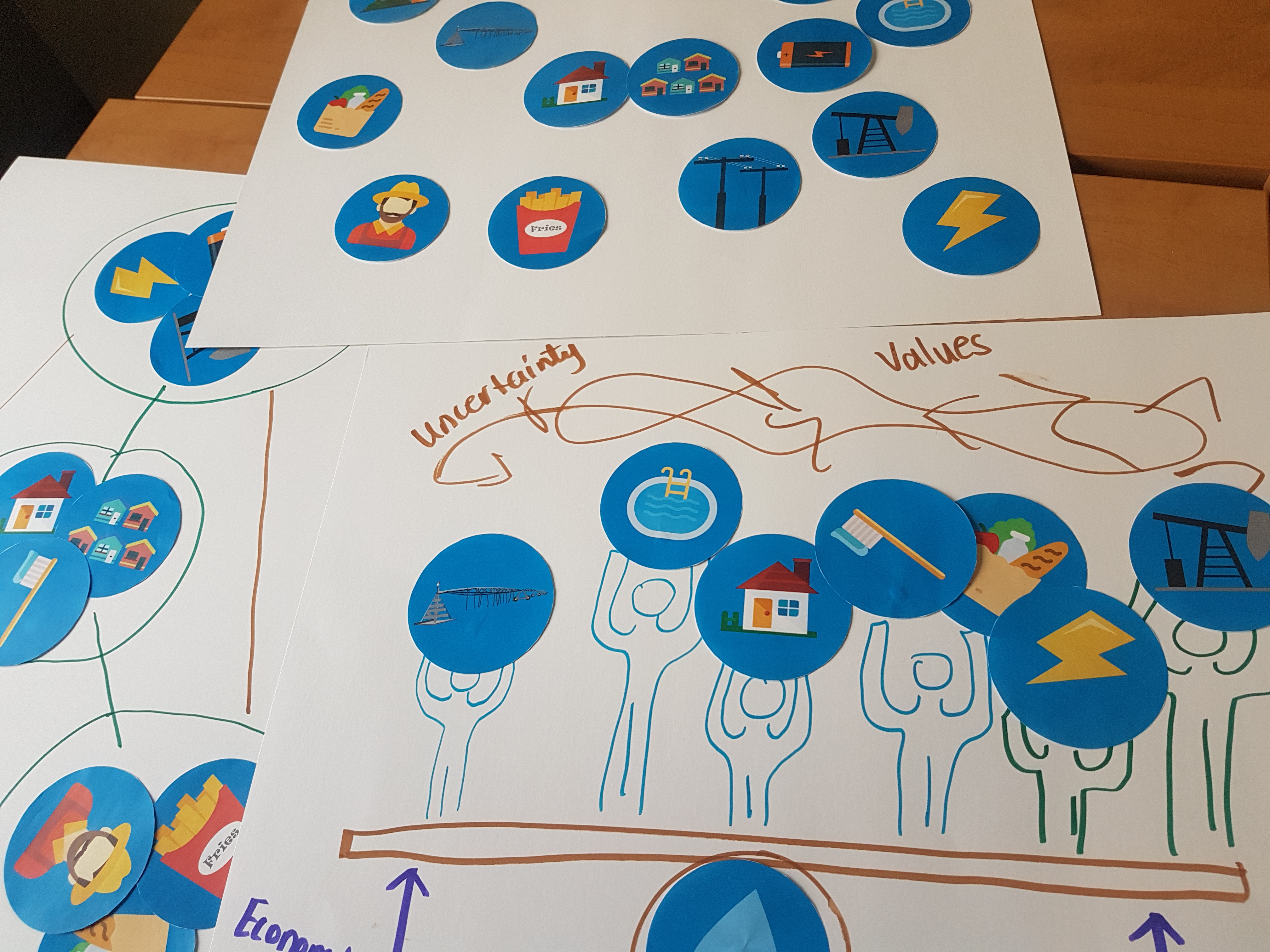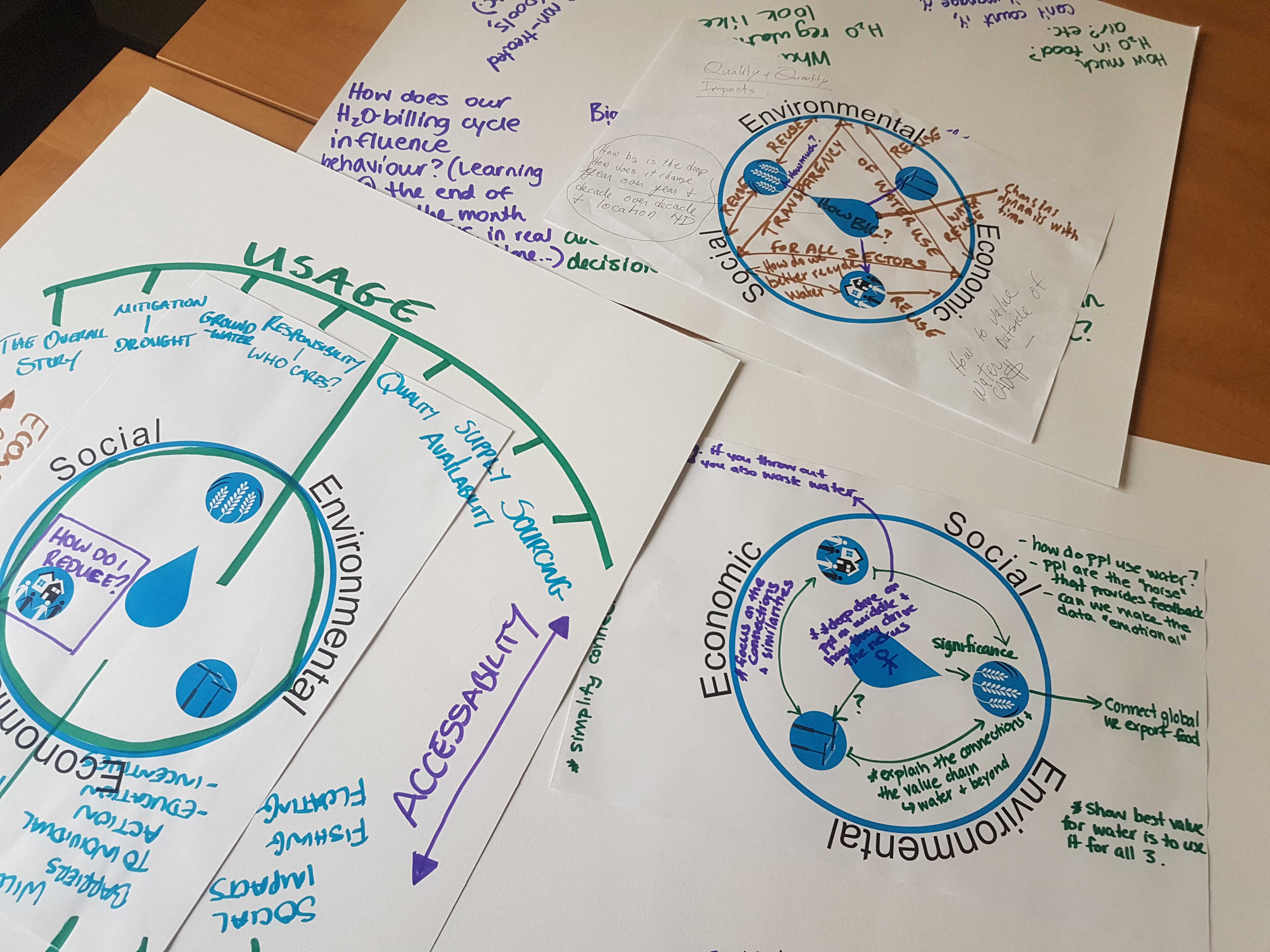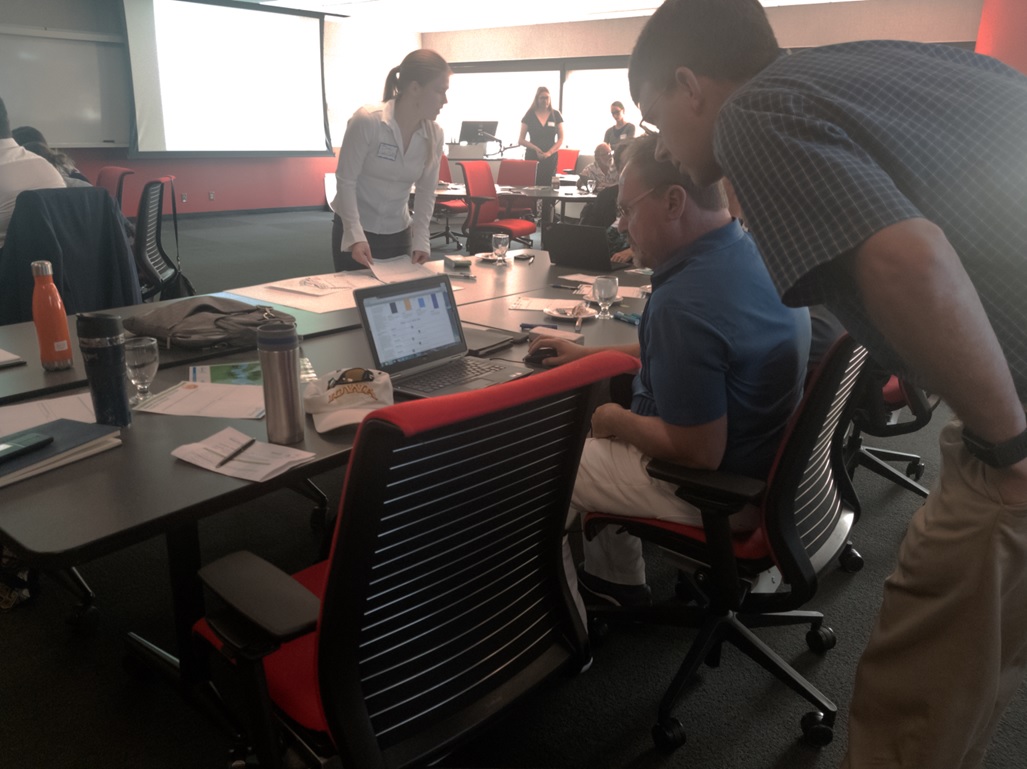Insights from “The Water-Energy-Food Nexus: Which way? Right way?” Workshop
By Therese Baluyot
On July 31, the Alberta WaterPortal held a workshop entitled “The Water-Energy-Food Nexus: Which way? Right way?”. The workshop brought together stakeholders from academia, water management, food, energy and other sectors to stimulate the engagement and discussion on how to educate and inform Albertans about the Water-Energy-Food Nexus (the “Nexus”). The Nexus is the intricate link between producing enough food, meeting growing energy needs, and ensuring there is sufficient water for people. In recent years, the Nexus concept has been acknowledged in the domain of environmental science and natural resource governance. It has become the defining term for understanding the interconnections between water, energy, and food. [1] The anticipated outcome of the workshop was to gather ideas and feedback for the development and application of the Nexus concept in Alberta.
The workshop was structured around the following activities:

Draw The Nexus – Participants were provided with poster boards, markers, and printed graphic materials to create a system map of their conceptualization of the Nexus. A representative from each table presented their Nexus system map and how their team understood it.

Where to Dive and What to Find – Following the Nexus system mapping exercise, participants were asked to move to a different table to form a new group. For this activity, participants were asked what relevant information they want to see and learn more about, in relation the the Nexus.

Nexus simulation 1.0 to 2.0 – For the final exercise, participants tested and evaluated the Nexus simulation. [2] This exercise was intended to flesh out the implications of the Nexus simulation and work through what improvements are needed to make the Nexus simulation experience relevant to Albertans.
The activities kept the workshop lively and each of the participants felt motivated to share their perspectives on the Nexus. In response to the instructions to think freely, the ideas were diverse, in scope, topic, and reasonableness. Because the participants came from a wide variety of sectors, there was no lecturing from the experts, but rather a colourful ensemble of participants expressing their different organizations’ interests and agendas… all with the same aspiration: keeping water flowing and healthy.
The Nexus workshop felt like a visionary brainstorming session. No long speeches or extensive PowerPoint presentations. The engineer, real estate manager, farmer, and watershed expert all worked together to solve water challenges. Through their collaboration, they discovered the concerns and solutions in other sectors, be it agriculture, energy, or biodiversity. For some, the Nexus workshop was an eye-opener about how things that we take for granted depend on each other.
The following key themes emerged as the workshop identified the stakeholders’ concerns, along with opportunities and barriers to improving the concept of the Nexus:
- Individuals influence all aspects of the Nexus – Individual actions can have a major overall impact. Everyone can do their part to reduce the amount of water and energy used by making small behavioural changes.
- The Nexus needs a common language – A key focus of work on the Nexus should be to provide the public with a common language and a common framework for articulating how water influences all aspects of our lives.
- Communication and collaboration – While diverse stakeholders often act independently and have competing goals, the impacts of their individual decisions are interconnected. Working in partnership and having all stakeholder ‘around the table’ is crucial for the Nexus to succeed.
- The Nexus demands a greater scope of data – Gathering insights from case studies can identify what enables transformative change to be able to implement the Nexus concept in Alberta.
Addressing these key themes can better facilitate constructive dialogue and education about the Nexus in our province.
The Alberta WaterPortal would like to thank Alberta Innovates and Alberta Real Estate Foundation for supporting the Alberta Nexus project, and the University of Calgary – Haskayne School of Business for providing a venue for the workshop. Finally, we would like to thank the participants for the fruitful discussion and pleasant atmosphere during the workshop. We, the organizers and facilitator, enjoyed it and learned a lot. We hope you did too.
A full workshop report will be available on September 2017.
Sources:
